I once suggested in print that the correct collective noun for London taxi drivers – the drivers of black cabs, that is – would be a “grumble”. Pretty feeble, I admit, and a reader wrote in to suggest that a “Nuremberg rally” of taxi drivers would be nearer the mark This is how they are commonly viewed: 20,000 Jeremy Clarksons, motorised barrow boys, ardent free marketeers except when it comes to their own bit of the market and the 300 years of legislation that enshrines their privileges.
But this time they’ve really got the hump. On 11 June London taxi drivers plan to create gridlock on the streets of the capital. The nominal target of the protest is Transport for London and its “fitness as a regulator”. The cabbies’ big concern is that TfL has “given the nod” to an American appthat wants to change taxi ordering not just in London but the whole of Britain and the world. Just as retail booksellers met their Amazon, and coffee shops their Starbucks, now taxi drivers are meeting … Uber.
Uber, which is backed by Goldman Sachs and Google, is on course for record-breaking fundraising that could bring its value to $17bn (£10bn), its chief executive, Travis Kalanick, trumpeted this week. We can imagine it as a blubbery monster that lurched out of Silicon Valley four years ago and began picking fights with taxi drivers. There have been protests against – and sometimes violent clashes with – Uber drivers in New York, Sydney, Toronto, Berlin, Brussels and Paris. Uber was licensed as a private-hire operator in London a couple of years ago, and the fight has been brewing ever since.
All you need to order a minicab through Uber is a smartphone … which I do not actually have, so I asked my better-equipped son to download the app. We registered and gave the details of a credit card. We were invited to enter a destination. I wanted to go from my home in north London to King’s Cross. But the app didn’t seem to acknowledge the existence of King’s Cross railway station, so I selected Euston Road, on which King’s Cross stands. We were invited to seek an estimate of the fare, which came up as between £10 and £15. We pressed the order button, and watched the word “requesting” for two minutes. Then came a text: “Your Uber is on its way. Abdel (4.3 stars) will pick you up in 13 minutes.”
Abdel (I have changed his name) was a nice man in a nice, new Prius. He was uncertain about my destination, which it seemed I hadn’t properly specified. He said: “What is the postcode of your destination?” I said: “I don’t know offhand.” Tapping at his satnav, Abdel counselled politely: “You should always have the postcode because London is a very big city, you know.” And as he spoke those words and performed that action, I thought of all the dead black-cab drivers turning in their graves.
I asked him whether he worked full-time for Uber. He did, but many of their 3,000 registered drivers do not. Uber sees itself as part of the “sharing economy”. Like Airbnb, which allows people to rent out rooms in their houses for short stays, Uber allows anyone who owns a good car – and can pass the regulatory tests – to make money as a minicab driver.
When we reached Euston Road, Abdel pressed a button marked “end of journey” on what I will call a device. He said that if I was interested to see what the fare was, I could wait a minute and it would appear on the device. Either way the fare would be deducted from my card. Being naturally distrustful, I waited: the fare was £10. Reasonable enough, but at times of high demand (a Tube strike) Uber will implement what it brazenly calls “surge pricing”, and higher rates apply. There was no question of a tip. The app had advised me not to give one, and Abdel was obviously fine about that, being happy with his 80% of the fare. Uber would be taking the other 20.
The transaction just described has infuriated not only the black-cab drivers of London, but also the non-Uber minicab drivers. Steve McNamara, of the Licensed Taxi Drivers Association, which represents black-cab drivers, said: “For the first time in 40 years, we agree with minicab drivers on something.” The objections go back to the legal agglomeration enshrining black-cab rights. McNamara accepts that many of those laws are redundant. So we’re not talking about how the taxi driver must always carry a bale of hay. We are talking about Section 11 of the Private Hire Vehicles (London) Act 1998. “No vehicles to which a PHV Licence relates shall be equipped with a taximeter.”
McNamara contends that the device in Uber cars is a taximeter. He argues that it calculates the fare by a combination of distance and time “exactly like our meters. If it looks like a duck, and walks like a duck, it is a duck.” The LTDA announced this week that it will be launching private prosecutions against Uber drivers on the grounds of the illegality of their meters.
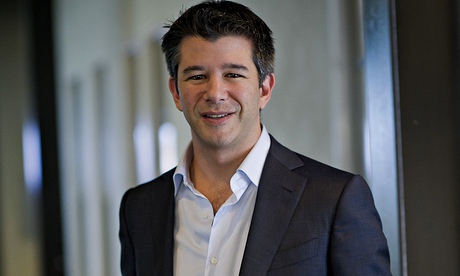 Travis Kalanick, chief executive officer at Uber Technologies. Photograph: Bloomberg/Bloomberg via Getty ImagesI sensed a certain opacity from McNamara about why nobody else should be metered. I suppose one possible answer might have sounded mercenary: a meter compensates for traffic. If a taxi falls below a certain speed, the meter keeps ticking – on the basis of time rather than distance. The meter is also a badge of the prowess of black-cab drivers. Only they are trusted to be summoned directly – to be hailed; only they can carry someone across London with a fare calculated as they go. The meter is their office and they carry it with them. They have earned this trust by having passed the notoriously difficult Knowledge exam. They know every street, and everything on every street, in a six-mile radius of Charing Cross.
Travis Kalanick, chief executive officer at Uber Technologies. Photograph: Bloomberg/Bloomberg via Getty ImagesI sensed a certain opacity from McNamara about why nobody else should be metered. I suppose one possible answer might have sounded mercenary: a meter compensates for traffic. If a taxi falls below a certain speed, the meter keeps ticking – on the basis of time rather than distance. The meter is also a badge of the prowess of black-cab drivers. Only they are trusted to be summoned directly – to be hailed; only they can carry someone across London with a fare calculated as they go. The meter is their office and they carry it with them. They have earned this trust by having passed the notoriously difficult Knowledge exam. They know every street, and everything on every street, in a six-mile radius of Charing Cross.
In the case of the minicab driver – the driver, that is, of a “private hire” vehicle – there can be no immediate consummation with the passenger. The minicab driver cannot be “hailed”. Foreplay is mandated or, to continue this bawdy strain, three-in-a-bed is compulsory. The passenger must deal with the driver via an intermediary, namely a licensed operator working from licensed premises: the minicab controller. It is sometimes thought that the destination must be agreed in advance. That is not actually a requirement. So it doesn’t really matter that when, having turned from King’s Cross, I made an Uber request for a taxi to Timbuktu, the app blithely responded with a quote of between £6,528 and £7,659.
But, to repeat, the licensed office is a requirement. This is why all minicab firms, in London or elsewhere, have shelled out for their licensed offices. They are proud of their organic local connection. I mentioned Uber to the highly effective – if outspoken – controller in my own nearest minicab office, and he said: “All these apps are used by young computer-minded …” and here he paused, searching for the right word, “twats.” Any intelligent person sources a decent minicab firm. If they’ve got a mobile phone they’ve logged our number on it. But we don’t want their bank details,” he said with disgust, “and if they have a problem they know where we are.”
Now does Uber have a licensed controller, or was I dealing directly with Abdel? There seemed to be no human being between us. There was some software. The professional rivals of Uber consider that in summoning Abdel, I had in effect hailed him just as surely as if I had been a Guards officer raising a furled umbrella. (It is said that Guards officers carried their umbrellas for no other reason than to hail taxis.)
On this question of intermediacy, Leon Daniels, managing director of Surface Transport at TfL announced with satisfaction this week that: “Uber have a base within the territory, and that has warm bodies inside it.” As to whether the Uber device counts as a meter, TfL are referring that to the high court. Mr Daniel thinks it is not, since it “operates independently of the vehicle”.
TfL, Mr Daniel said, has subjected Uber to its “largest ever compliance investigation, and found it meets the current requirements on record keeping … its drivers hold the relevant licenses and insurance.” There are some technical aspects of Uber’s operating model that are “being addressed”. But TfL is too well-disposed to Uber for the liking of the taxis and minicabs of London, and both are talking of legal action against TfL. According to McNamara: “TfL is scared of Uber’s money.” So the chances of their being unlicensed were nil.
As of last month, Uber is also operating in Manchester. Max Lines, general manager of the Manchester operation, says: “The growth has been incredible. The ultimate mission plan is for Uber to be present in every British town.” Uber may not be so strongly resisted outside London, where minicabs are allowed to be metered and there are fewer hailable taxis (Hackney carriages, in the jargon).
Jo Bertram, Uber general manager for the UK and Ireland, says Uber is “bringing competition to an industry that hasn’t evolved in years”. But the black-cab drivers say they have modernised, and they have an app of their own: Hailo, which “works with London’s 23,000 trusted black-cab drivers” under the slogan “Back to black”. Or it did, because the cabbies have got the hump about that as well. Hailo recently announced it will apply to become a private hire operator extending its services to minicabs, presumably in a way that passes the test of intermediacy. Its London HQ was daubed with the word “scab” and many cabbies have now “come off the app”. One driver told me he thought Hailo had gone “a bit tits up actually” as a result of this backlash. Whether this is true, I can’t say because a representative from Hailo would not speak to me.
My conversations with taxi drivers this week were mainly about Uber, but I seemed to hit a freak strain of perfectly equable cabbies. The first one said: “To be honest, fella, I only read about it in the taxi press and that’s bound to be a bit biased, isn’t it?” Another one went so far as to concede the usefulness of GPS technology. “Late at night, you’ll get a guy in the back who’s had a few, and you’ll say: ‘Just give me your postcode mate, then you can relax, have a little kip.'” He thought the Knowledge was still relevant, but primarily as a symbol of achievement; of character. I thought of Jack Rosenthal’s very amusing TV play of 1979, The Knowledge. At the start, two aspirants, “Knowledge boys”, are talking in a caff. The first peremptorily demands of the second: “French Embassy to Fulham cemetery.” “What?” says the second.”‘What do you mean: ‘what’?” says the first. The second man responds: “Try me on Woburn Square to North London Polytechnic, I know that one.” The first man then leans towards the second and says with disdain: “It’s your mother what asks you the ones you know. Them sadists up the road asks you the ones you don’t know.”
Uber’s Bertram magnanimously added: “London black taxis are iconic, and I’m sure they’re here to stay.” But who can say that anything is here to stay with Uber/Google on the march? Pedals, steering wheel, driver … all are absent from the driverless car unveiled by the company this week. There is a passenger, of course, and soon we will all be passengers, numb sightseers on the great Google highway.
Source: The Gurdian


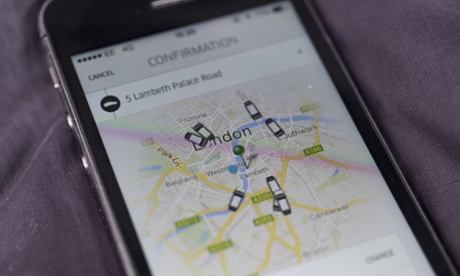

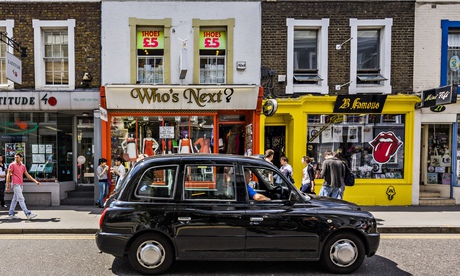







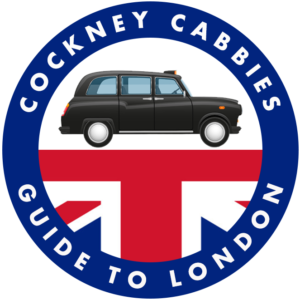

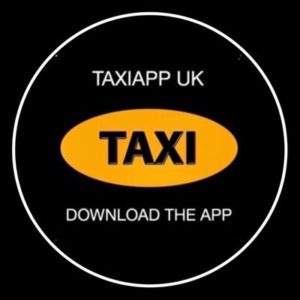
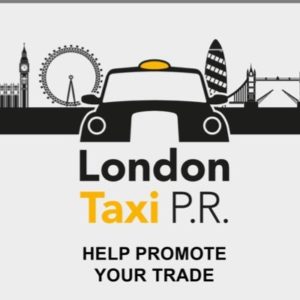
Recent Comments